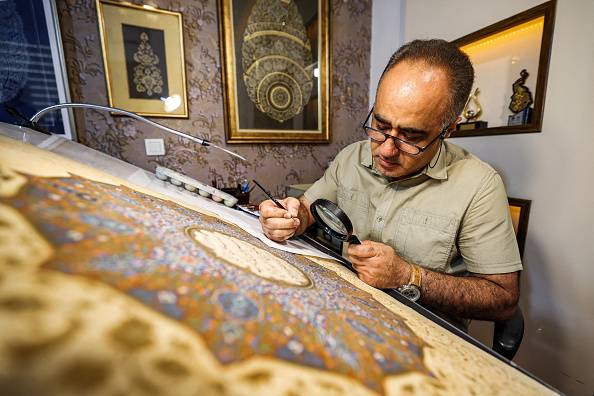Dubai: Reformist candidate Masoud Pezeshkian won Iran’s runoff presidential election Saturday, besting hardliner Saeed Jalili by promising to reach out to the West and ease enforcement on the country’s mandatory headscarf law after years of sanctions and protests squeezing the Islamic Republic.
Pezeshkian promised no radical changes to Iran’s Shiite theocracy in his campaign and long has held Supreme Leader Ayatollah Ali Khamenei as the final arbiter of all matters of state in the country. But even Pezeshkian’s modest aims will be challenged by an Iranian government still largely held by hardliners, the ongoing Israel-Hamas war in Gaza, and Western fears over Tehran enriching uranium to near-weapons-grade levels.
A woman gets her ballot to vote for the presidential election in a polling station at the shrine of Saint Saleh in northern Tehran.Credit: AP
A vote count offered by authorities put Pezeshkian as the winner with 16.3 million votes to Jalili’s 13.5 million in Friday’s election.
Supporters of Pezeshkian, a heart surgeon and longtime lawmaker, entered the streets of Tehran and other cities before dawn to celebrate as his lead grew over Jalili, a former nuclear negotiator.
But Pezeshkian’s win still sees Iran at a delicate moment, with tensions high in the Middle East over the Israel-Hamas war, Iran’s advancing nuclear program, and a looming US election that could put any chance of a detente between Tehran and Washington at risk.
The first round of voting on June 28 saw the lowest turnout in the history of the Islamic Republic since the 1979 Islamic Revolution. Iranian officials have long pointed to turnout as a sign of support for the country’s Shiite theocracy, which has been strained by years of sanctions crushing Iran’s economy, mass demonstrations, and intense crackdowns on all dissent.
Government officials up to Supreme Leader Ayatollah Ali Khamenei predicted a higher participation rate as voting got under way, with state television airing images of modest lines at some polling centres across the country.
However, online videos purported to show some polls empty, while a survey of several dozen sites in the capital, Tehran, saw light traffic amid a heavy security presence on the streets.
The election came amid heightened regional tensions. In April, Iran launched its first-ever direct attack on Israel over the war in Gaza, while militia groups that Tehran arms in the region – such as the Lebanese Hezbollah and Yemen’s Houthi rebels – are engaged in the fighting and have escalated their attacks.


















.png)


Discussion about this post